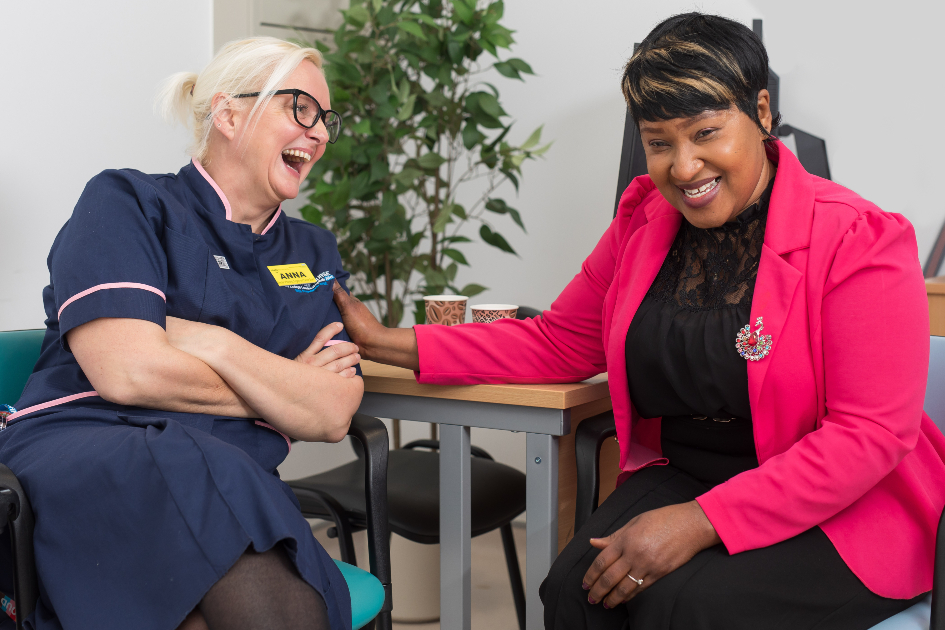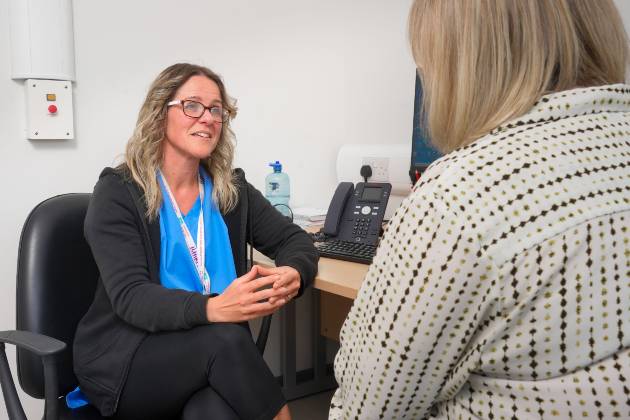Recovery support worker Jasmine Cottle reflects on her essential community mental health work over the last few months
“Many people thought mental health services paused during the height of the pandemic. In fact, we’ve been busier than ever,” says Jasmine Cottle, a recovery support worker at South West London and St George’s Mental Health NHS Trust.
While she and some of her colleagues continued face-to-face appointments throughout the lockdown period, others in the team worked from home, taking responsibility for the duty phone and carrying out telephone appointments.
The onset of the pandemic saw many people having a first mental health episode. Jasmine, who was regularly working long days, visited the homes of patients in crisis – those who have been recently discharged or those who were close to admission.
Many people thought mental health services paused during the height of the pandemic. In fact, we’ve been busier than ever
Her appointments generally take place over a period of between two and six weeks, although she might refer some of these patients to longer term support or therapy if necessary.
“Some have suicidal thoughts or intentions, so we monitor their mental health daily – sometimes more than once a day – looking at care and safety planning while providing practical help and support,” she explains. “This might mean managing their medication, getting them to talk to us and open up more – or just finding out what works best for them.”
The availability of personal protective equipment (PPE) was not an issue for Jasmine, but for some patients, the additional equipment was concerning.
“Neighbours could see us on their doorsteps putting on PPE to go in and that made some people feel uncomfortable. Some clients found the mask intimidating and asked me to take it off, which of course I had to refuse to do to protect us all.
“But communication is so important in my role, so it was much more difficult for some people who were unable to see my facial expressions, especially as masks can distort your speech.”
We worked to treat people at home wherever possible
Avoiding admission
Many mental health services are already moving towards keeping people out of hospitals and supporting them in the community instead. Jasmine says the pandemic accelerated this as it’s so much better for people to avoid the restrictions that come with hospital admission.
“We had to be especially careful if people had a pre-existing condition. We want to avoid the need for them to go into hospital, and we worked to treat people at home wherever possible. Where admission was unavoidable, I’d carry out a COVID-19 swab test first, so that if it was negative, they could be admitted to a green (COVID-free) ward.”
The multidisciplinary team of 17 she works in used their daily morning meetings to discuss and address the potential challenges they’d face. This was especially important in helping people meet their goals. Contact, talking and socialising is important for the team’s clients.
Caseloads and staffing levels were hard to predict but Jasmine stresses that far from minimising mental health support, her workplace opened a separate A&E for mental health, where she worked additional shifts, supporting the triaging of new admissions. The trust also increased the hours of its mental health crisis line to 24/7, and set up another ward, which could accept physically unwell patients from acute hospitals.

Family support
Jasmine’s role isn’t limited to helping individual patients. She offers education and intensive support to families as well.
“In one case a patient was struggling to manage their medications. A family member was driving a significant distance to give them their medicine, but they didn’t really understand the diagnosis. They just knew they were paranoid and unwell. It was so worrying for them. I gave them reassurance alongside practical support, such as introducing blister packs, getting the GP involved and explaining how the trust works.
“We can help families understand the stigma and for some, who initially don’t believe it’s a real thing, encourage them to open up and educate them too. This has been more important than ever in the last few months.”
A chance to promote understanding
Catherine Gamble, RCN Professional Lead for Mental Health, says: “World Mental Health Day takes place on 10 October and provides a chance for us all to highlight what RCN members can do to promote understanding, increase capability and foster closer working relationships between physical and mental health care.
“Our parity of esteem campaign looks at the need to value mental health equally to physical health. We believe people with complex mental health needs should have the same access to health care services and support as people with physical health needs. We must continue to champion mental health equality.”








